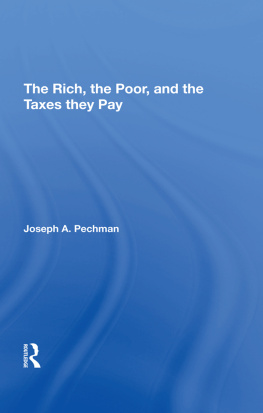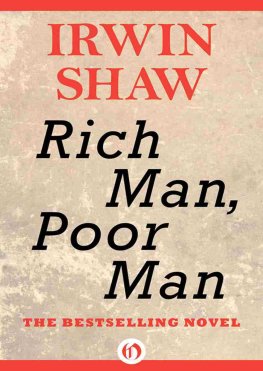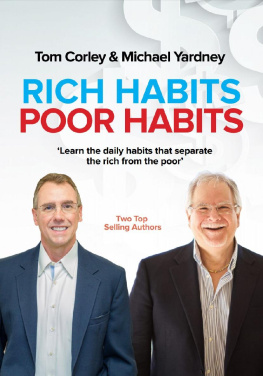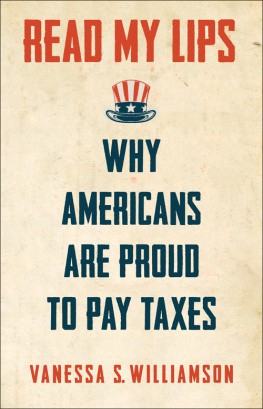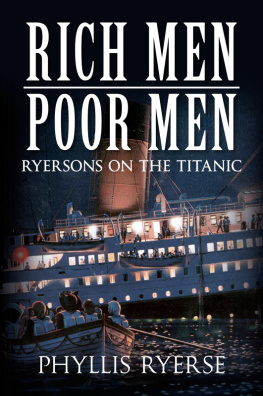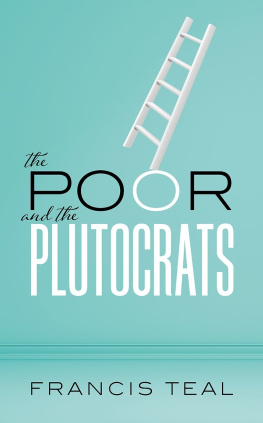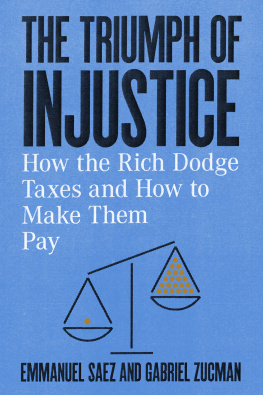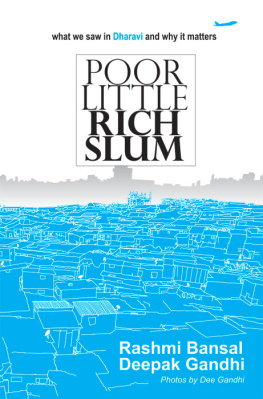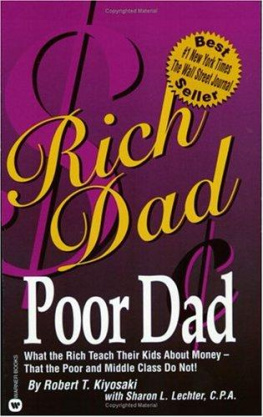First published 1986 by Westview Press
Published 2019 by Routledge
52 Vanderbilt Avenue, New York, NY 10017
2 Park Square, Milton Park, Abingdon, Oxon OX14 4RN
Routledge is an imprint of the Taylor & Francis Group, an informa business
Copyright in England by Joseph A. Pechman, 1986
All rights reserved. No part of this book may be reprinted or reproduced or utilised in any form or by any electronic, mechanical, or other means, now known or hereafter invented, including photocopying and recording, or in any information storage or retrieval system, without permission in writing from the publishers.
Notice:
Product or corporate names may be trademarks or registered trademarks, and are used only for identification and explanation without intent to infringe.
LCN 85-52292
ISBN 13: 978-0-367-29552-3 (hbk)
I am pleased to have this opportunity to present a selection of my essays on public finance. The selection is limited to matters of taxation, income maintenance, and social security, with emphasis on the analysis of policy alternatives to improve tax and transfer systems. I have omitted a number of articles which might have been included had there been no space limitation; the most important omissions are those concerning the measurement of built-in flexibility of the income tax and current budget and fiscal policies. Some of the essays have been updated and others have been shortened, but I have not attempted to rewrite them or to redo the complicated statistical analyses on the basis of more recent data.
My particular contribution to the public finance literature has been, I believe, to provide an empirical basis for the analysis of tax and transfer policy issues. So, for example, I have prepared estimates of the actual degree of progressivity of the US income tax and of the reduction in tax rates that might be possible if a comprehensive income tax base were adopted. I am persuaded that these calculations helped to dramatise the advantages of comprehensive income taxation, which is now being seriously considered in the United States. I have also prepared estimates of the distribution of federal, state, and local tax burdens in the United States on the basis of the most widely accepted incidence theories held by economists. Such estimates have provided an empirical basis for the discussion of various methods of reforming the tax-transfer system.
I have included a section on fiscal federalism both because of the importance of the subject and the particular role I played in the development of US inter-governmental fiscal policy. In 1964, I chaired a presidential task force which proposed the enactment of a plan by the federal government to share its revenues with the states and local governments. This plan, which was soon called the Heller-Pechman plan (the senior member of the combination being Walter W. Heller, who was then Chairman of the presidents Council of Economic Advisers and a major contributor to the idea of revenue sharing) was rejected by President Lyndon B. Johnson, but enacted almost intact in Present Richard M. Nixons administration. The text of the task force report is reproduced for the first time in of this volume.
Although most of the essays in this volume are directed at the US scene, I believe that the analysis is generally relevant to the situation in other countries as well. I have included a section on foreign tax systems to illustrate how the ideas and techniques I have developed can be applied to other countries. The chapters on the Japanese and British tax systems illustrate the pervasiveness of policies that erode the income tax base, without really achieving the economic or social results that were sought. Regretfully, income tax erosion and the adoption of regressive payroll and value added taxes to raise necessary revenues have greatly reduced or eliminated tax progressivity in many countries. The book concludes with a chapter arguing that the trend toward regressive taxation almost everywhere has been carried too far and that there is room to improve tax progressivity without running the risk of raising tax rates to punitive levels.
I have accumulated many debts during my career to teachers, friends, and colleagues who have contributed to my intellectual development and research. Foremost among them are Harold M. Groves, my teacher at the University of Wisconsin, and Walter Heller, a classmate at Wisconsin and life-long friend and collaborator. It was Harold Groves who instilled in me the idea that rich people often pay less taxes than the nominal tax rates would suggest and encouraged me to develop estimates of the distribution of tax burdens by income classes. Walter Heller has been a continual source of ideas, inspiration, and encouragement. He and I collaborated on many projects, revenue sharing and tax reform being the most notable examples, and we have continued our close association to this day.
I have also been closely associated with Stanley S. Surrey of the Harvard Law School and Richard A. Musgrave of Harvard University in the battles for tax reform. Stanley Surrey kept my research relevant to the major policy issues in taxation and insisted that only the highest standards of economic and statistical analysis would promote serious tax reform. Richard Musgraves work helped me understand the major problems of measuring the distribution of tax burdens and to develop the techniques I have since used to make my own estimates. Arnold C. Harberger of the University of Chicago and Lord Nicholas Kaldor of Cambridge University also greatly influenced my work on taxation, the former on tax incidence and the latter on tax reform.
I was fortunate to be a member of four outstanding research organisation which had major influences over my ideas in tax policy and provided the resources I needed to pursue my rather expensive tastes in research. They were the Wisconsin Income Tax Study, the Division of Tax Research (now the Office of Tax Analysis) of the Treasury Department, the Committee for Economic Development, and the Brookings Institution.
The Wisconsin Income Tax Study gave me my first opportunity to develop distributions of income on the basis of tax data. I am indebted to my colleagues Frank A. Hanna and Sidney M. Lerner for their assistance and cooperation in these early stages of my career and to Milton Friedman and Herbert E. Klarman for their technical and editorial advice on my doctoral dissertation on patterns of income in Wisconsin, which was based on data developed by the Wisconsin Income Tax Study.
At the Treasury I had the benefit of an education in tax research by such notable tax economists as E. Cary Brown, Roy Blough, L. Laszlo Ecker-Racz, Marius Farioletti, Richard Goode, Walter Heller, Louis Shere, Richard Slitor, and William Vickrey, who were members of the staff, and Richard Musgrave, Paul Samuelson, Lawrence H. Seltzer, and Carl S. Shoup, who were consultants. I also learned a great deal from the outstanding staff of tax lawyers at the Treasury, particularly Charles W. Davis, Adrian W. A. DeWind, Louis Eisenstein, James B. Lewis, Randolph Paul, and Stanley Surrey.
The Committee for Economic Development is the first (and perhaps the only) business organisation which has endorsed the idea of comprehensive income taxation. At CED, I had the opportunity to learn first-hand the businessmans views on taxation and benefited from the wisdom and experience of my distinguished colleagues on the research staff, Edward F. Denison and Herbert Stein.
I have spent the last twenty-five years in the unusually stimulating and congenial intellectual environment at the Brookings Institution. I am especially grateful to the three presidents of the Brookings Institution with whom I served, Robert D. Calkins, Kermit Gordon, and Bruce K. MacLaury for their support and encouragement, to Marshall A. Robinson who first suggested the idea of my joining the Brookings staff and later helped finance much of my tax research as an official of the Ford Foundation, and to my colleagues Henry J. Aaron, Barry Bos worth, Gary Burtless, Harvey Galper, Richard Goode, Robert W. Hartman, Arthur M. Okun, George Perry, Alice M. Rivlin, Charles L. Schultze, and Emil M. Sunley for the opportunity to collaborate on numerous projects on budget and tax policy, I also profited from my association with George F. Break, Otto Eckstein, Charles E. McClure, Jr., Alicia H. Munnell, and Michael K. Taussig who contributed to the lively conferences and research projects at Brookings.

